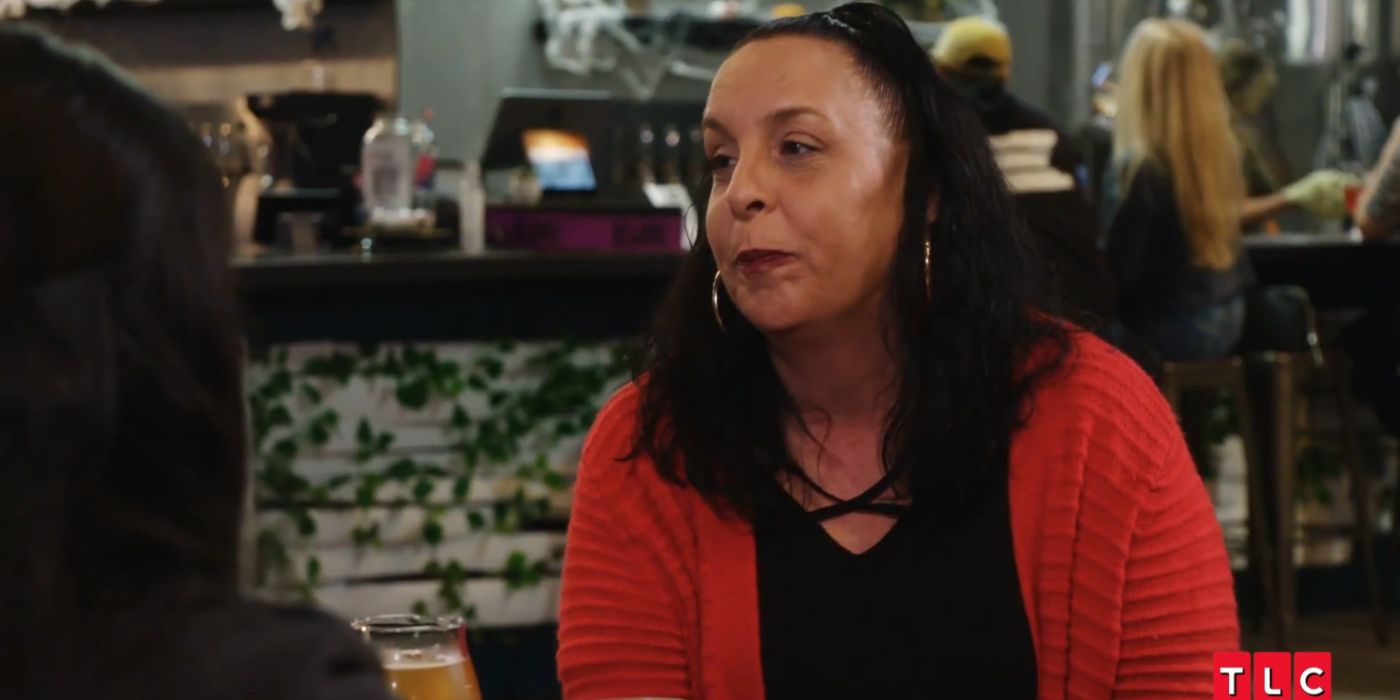🔥 TRAGEDY: Jamal HOSPITALIZED in CRITICAL State Broken ARM 🚨🏥 — Kim Menzies Breaks Down in SOBS 😢🙏
Sirens echoed through the streets as paramedics arrived, responding to the call. Red and white lights flickered across Jamal’s living room ceiling. The paramedics moved swiftly—their hands steady, their expressions calm.
They carefully lifted him onto a stretcher, checked his vitals, and stabilized his arm. Jamal fought back tears, gritting his teeth—not from weakness, but from the overwhelming shock of it all.
Before they wheeled him into the ambulance, he made one simple request: “Can someone call my mom?”
Across the city, Kimberly Menses was finishing her morning coffee. Her living room smelled of hazelnut creamer and cinnamon candles. Memories of her time on 90 Day Fiancé lingered in the air, alongside framed photos of Jamal through the years.
She had planned to see her son later that day. But her phone rang, and something maternal urged her to answer.
“Ms. Menses? This is Sharp Medical Center. Your son Jamal has been admitted. He’s stable, but he broke his arm in a fall. He asked us to call you.”
The world tilted. Kimberly’s hand trembled. Her coffee turned cold as she processed the words. Within minutes, she grabbed her keys and was out the door, her mind racing with questions.
What had happened? How bad was it? Was he alone for long? Was he in pain?
Her heart ached with a unique kind of fear only a mother knows—the helplessness of not being there when it mattered most. The city blurred as she drove. Red lights and intersections passed without significance. Her only focus was on getting to her son.
By the time Kimberly arrived at the hospital, Jamal had already undergone X-rays and been sedated. The nurses directed her to the waiting room, where she sat, trying to remain calm.
Fear isn’t rational when it comes to your child.
A doctor finally appeared, offering reassurances. “It’s a clean break—no surgery required. Just a cast, rest, and therapy. He’ll heal with time.”
Though the doctor’s words were comforting, Kimberly’s anxiety didn’t ease until she saw Jamal for herself.
When she entered his room, he was awake but groggy. His eyes fluttered open and met hers.
“Hey, Ma,” he said weakly, attempting a smile.
“Hey, baby,” she replied, her voice soft but steady.
Carefully, she brushed his hair back from his forehead, mindful of the sling supporting his arm. For hours, she sat by his side, holding his uninjured hand and watching as color returned to his cheeks.
Kimberly had always been proud of Jamal—for his quiet dignity, his resilience, and his grace under pressure. But in that moment, pride gave way to something more primal: the simple, overwhelming relief of still having her son.
Kimberly didn’t ask if Jamal wanted her to stay with him after he was discharged that evening. She simply showed up.
Jamal, too proud to ask but too grateful to refuse, let her.
The rhythm of their lives shifted in the days that followed. Jamal, fiercely independent, now had to rely on his mother for simple tasks—zipping jackets, buttoning shirts, heating meals.
Kim, who hadn’t been in his daily life for years, threw herself into caregiving with a storm of maternal energy. She bought gel ice packs, rearranged furniture to prevent tripping, and adjusted the air conditioning to keep him comfortable.
Together, they settled into a new routine—quiet, subdued, but filled with a renewed connection.
For Jamal, the days after his fall were grueling. The physical pain from his broken arm was intense, but the forced stillness was even more difficult to bear.
A life once filled with meetings, emails, and workouts now moved at a snail’s pace. Even basic tasks—brushing his teeth with his left hand, typing, or holding a cup—had to be relearned.
But the most profound change was learning to let himself be vulnerable.
For Kimberly, watching her son struggle was bittersweet. Their lives had drifted apart over the years, separated by geography and unspoken gaps. Though they loved each other deeply, there had been long stretches without check-ins or emotional honesty.
Now, those gaps were being filled.
One night, Jamal woke up in agony as the effects of his pain medication wore off.
Struggling to sit up and get a glass of water, he felt dizzy and disoriented. He collapsed back onto the couch, helpless.
From down the hall, Kimberly heard him stir. Without hesitation, she rushed to his side.
Kneeling beside him, she whispered, “I’ve got you. Let me help.”
For the first time in years, Jamal let her. He allowed her to lead—to lift the glass to his lips, adjust the cushions behind his back, and place a cool compress on his forehead.
It wasn’t weakness. It was human.
In the days that followed, their routine became a kind of healing ritual.
Kim brewed Jamal’s favorite coffee every morning—black with oat milk—and they sat on opposite sides of the couch, sunlight pooling on the floor.
Jamal’s work slowed but didn’t stop. He answered emails with one hand while Kim hovered nearby with snacks and drinks.
Gradually, deeper conversations began to surface.
One afternoon, as Kim folded laundry, Jamal broke the silence.
“Do you ever wish you could undo it?” he asked.
Kim looked up. “Undo what, baby?”
“The show. The cameras. Everything with Usman. All of it.”
Kim paused, then answered carefully. “I don’t regret loving someone. But I do regret how much of my life I gave to prove that love to strangers.”
Jamal nodded, staring out the window. “I hated seeing people judge you,” he said. “But I hated how people saw me, too—like I was just part of some storyline.”
Kim’s voice was firm. “You’ve never been a storyline. You’re so much more than that.”
“I know that now,” Jamal said. “But I didn’t back then.”
Their bond continued to strengthen. Jamal started physical therapy, and Kim attended every session. She cheered him on, even when he grumbled through the exercises.
“You’re doing great, baby,” she’d say.
“Mom, you don’t have to say that,” he’d reply, rolling his eyes.
“I’m your mom,” she’d tease. “I’ll say it whether you want to hear it or not.”
One Wednesday, during therapy, Jamal pushed through a difficult exercise. His arm trembled with effort, pain flickering in his eyes.
When asked if he was okay, he glanced at Kim and said, “I’m doing it for her. I want to be strong for her.”
Kim’s eyes welled with tears. At that moment, she realized the fall had broken more than his arm—it had broken down walls between them, allowing love and connection to flow freely again.
As Jamal healed, their time together drew to a close.
One evening, as they sat in the living room, Jamal turned to his mom. “I think I’m ready now,” he said.
Kim smiled knowingly. “You think you’re ready for me to leave?”
“Not because I want you to go,” he said, “but because I feel okay. And you need to rest, too.”
Kim hugged him gently. “You’ll always be my baby, Jamal.”
“And you’ll always be a little extra, Mom,” he teased.
That night, Kimberly packed her bags—not with sadness, but with peace. She knew this wasn’t a setback. It was a reset—a chance for both of them to navigate back to each other.








